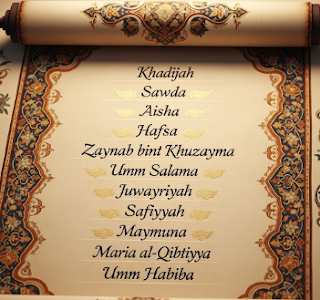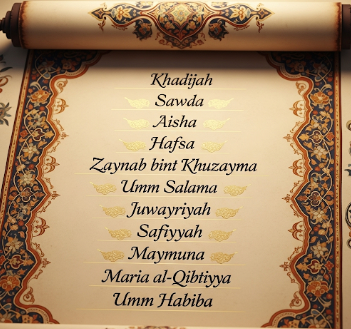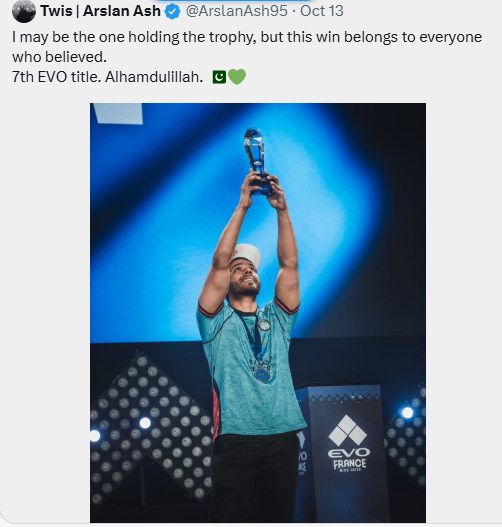Marriages of Prophet Muhammad: Context, Purpose, and Lessons Often Missed (Part-2)
This article is the second part of a two-part series exploring the marriages of Prophet Muhammad (PBUH). In Part I, we already discussed the earlier wives of the Prophet (PBUH). So, in this continuation, we will look at the remaining wives — Hazrat Umme Habiba (RA), Hazrat Zainab (RA), Hazrat Safiya (RA), Hazrat Javeria (RA), and Hazrat Maymoona (RA) — with historical context, reasons, and the wisdom behind these marriages.
Hi, I am Minhan and I write a Readanica. I’ll walk you through this article.
Timeline, Children and Historical Impact of Marriages:
| Wife (RA) | Year of Marriage | Marital Status Before | Approx. Duration | Number of Children | Key Historical Impact |
|---|---|---|---|---|---|
| Hazrat Umm Habiba bint Abi Sufyan | 628 CE | Widow | ~4 years | — | Diplomatic reconciliation; dignity of faith in exile |
| Hazrat Zaynab bint Jahsh | 627 CE | Divorced | ~5 years | — | Legal reform abolishing false adoption norms |
| Hazrat Safiya bint Huyayy | 628 CE | Widow | ~4 years | — | Racial and tribal equality; emotional healing after conflict |
| Hazrat Juwayriya bint al-Harith | 627 CE | Captive / Widow | ~6 years | — | Mass emancipation; peace with Banu Mustaliq |
| Hazrat Maymunah bint al-Harith | 629 CE | Widow | ~3 years | — | Strengthening Quraysh relations; dignity at every life stage |
7. Marriage to Hazrat Umm Habiba bint Abi Sufyan (RA)
🌼 The Marriage, Briefly Told
Hazrat Umm Habiba (RA) was among the early Muslims who migrated to Habsha for the sake of faith. While in exile, her husband, Ubaidullah bin Jahsh, abandoned Islam and embraced Christianity, eventually falling into alcoholism and passing away. She remained firm upon Islam despite being alone, widowed, and far from her homeland — a quiet but powerful act of faith.
After completing her ‘iddah, she saw a dream in which she was addressed as “Mother of the Believers,” which she later understood as a sign. Not long after, King Najashi of Habsha conveyed the marriage proposal sent by Prophet Muhammad (PBUH). She accepted and appointed her uncle, Khalid bin Saeed (RA), as her wakil.
The nikah was conducted by King Najashi himself, who accepted Islam and gave her a mahr of 400 dinars on behalf of the Prophet (PBUH). A waleema was arranged in Habsha, marking one of the most dignified long-distance marriages in Islamic history.
This marriage occurred while her father, Abu Sufyan, was still a leading opponent of Islam — highlighting Islam’s refusal to judge individuals by family hostility.
🌼 What People Miss Today
Hazrat Umm Habiba’s (RA) marriage is often reduced to politics, but her personal sacrifice usually gets overlooked. She migrated for her faith, lost her husband to apostasy, lived as a widow in a foreign land, and never compromised her belief — even when isolation and grief stacked up.
Another missed point: this marriage happened while her father, Abu Sufyan, was still a leading enemy of Islam. Islam did not treat lineage as guilt by association. The proposal honored her faith, not her family background. Even the nikah, conducted by King Najashi, reflected Islam’s flexibility and dignity across borders.
This wasn’t sentiment. It was patience meeting principle.
🌼 Key Lessons
This marriage teaches that faith-based dignity does not expire in exile or widowhood. It also shows Islam’s ability to build bridges without compromising belief — respect can exist even before reconciliation.
References: Sunan Abu Dawood; Ibn Sa‘d
8. Marriage to Hazrat Zaynab bint Jahsh (RA)
🌼 The Marriage, Briefly Told
Hazrat Zaynab (RA), a cousin of the Prophet (PBUH), was previously married to Hazrat Zaid bin Harithah (RA), the Prophet’s freed slave and adopted son. This marriage was arranged by the Prophet (PBUH) to dismantle class barriers and affirm equality beyond lineage.
Despite noble intentions, the marriage proved incompatible. Hazrat Zaid (RA) repeatedly sought divorce, and although the Prophet (PBUH) advised patience, the marriage eventually ended.
Following the divorce, Allah commanded the Prophet (PBUH) to marry Hazrat Zaynab (RA), as revealed in Surah al-Ahzab (33:37). This divine instruction ended the pre-Islamic belief that adopted sons held the same legal status as biological sons in matters of marriage.
The Prophet (PBUH) hesitated due to public opinion, a hesitation explicitly recorded in the Qur’an itself — underscoring that the marriage was an act of obedience, not desire. Allah Himself solemnized this marriage, making it unique in Islamic history.
🌼 What People Miss Today
This marriage is often discussed emotionally, while its legal and moral reform is missed. Pre-Islamic Arabia treated adopted sons as biological ones, creating rigid — and false — family boundaries. Allah dismantled this through practice, not theory.
The Prophet (PBUH) himself hesitated, fully aware of public scrutiny. That hesitation matters. It shows this marriage wasn’t driven by desire, but obedience to divine law. The Qur’an openly records this discomfort — something no self-serving narrative would include.
Zaynab’s (RA) marriage was not controversial by accident; it was controversial by design, to end a harmful social fiction.
🌼 Key Lessons
This marriage teaches that truth sometimes requires confronting social discomfort. It also establishes that Islamic law is rooted in clarity, not emotional optics or inherited customs.
References: Qur’an 33:37; Ibn Hisham; Sahih al-Bukhari
9. Marriage to Hazrat Safiya bint Huyayy (RA)
🌼 The Marriage, Briefly Told
Hazrat Safiya (RA), the daughter of a Jewish tribal leader, became a widow after the Battle of Khaybar. Initially taken among the captives, her status was brought to the Prophet’s (PBUH) attention due to her lineage.
The Prophet (PBUH) gave her a choice: freedom and return to her people, or Islam and marriage. She chose Islam and marriage freely, and the Prophet (PBUH) honored her by granting her the title Mother of the Believers.
Hazrat Safiya (RA) later spoke openly about her grief, trauma, and initial resentment — emotions the Prophet (PBUH) addressed with patience and explanation, not force. Her marriage marked the collapse of racial, tribal, and religious hierarchies within the Muslim community.
When she arrived in Madinah, many did not recognize her as the Prophet’s wife due to her Jewish origin — a reminder of the social barriers Islam actively dismantled.
🌼 What People Miss Today
Hazrat Safiya’s (RA) journey is often told as a conquest story, when it is actually one of emotional healing. She lost her family, her husband, and her social identity — and entered the Prophet’s household not through coercion, but choice and care.
Many overlook how openly her trauma is documented — her dreams, her bruises, her initial resentment. Islam didn’t erase her past; it acknowledged and healed it. Her elevation to “Mother of the Believers” erased tribal hierarchies without denying history.
This marriage broke racial, religious, and social barriers in one human stroke.
🌼 Key Lessons
This marriage affirms that dignity is not erased by origin or loss. Islam does not demand emotional amnesia — it allows healing through mercy, explanation, and time.
References: Sahih Muslim; Ibn Umar (RA) narration
10. Marriage to Hazrat Juwayriya bint al-Harith (RA)
🌼 The Marriage, Briefly Told
Hazrat Juwayriya (RA), daughter of the chief of Banu Mustaliq, was taken captive after conflict between her tribe and the Muslims. She entered into a contract with Hazrat Thabit bin Qais (RA) to purchase her freedom and approached the Prophet (PBUH) for assistance.
The Prophet (PBUH) offered her a better option: freedom and marriage. She accepted willingly. When news of the marriage spread, the companions released nearly one hundred families from her tribe, saying they could not hold the relatives of the Prophet captive.
Hazrat Aisha (RA) later remarked that she had never seen a woman bring such blessing to her people. This marriage transformed a battlefield outcome into reconciliation and peace.
🌼 What People Miss Today
Hazrat Juwayriya’s (RA) marriage is often framed as personal, but its collective impact was massive. One woman’s dignity led to the freedom of nearly a hundred families. That doesn’t happen by accident.
Another overlooked detail: she negotiated her freedom herself. She spoke, asked, and chose. The Prophet (PBUH) did not rescue her from above — he empowered her decision, then elevated her status.
Hazrat Aisha’s (RA) remark about her blessing wasn’t poetic — it was factual.
🌼 Key Lessons:
This marriage shows how individual dignity can transform entire communities. It also sets a precedent for humane treatment of prisoners and conflict resolution through mercy
References: Sahih Muslim; Ibn Sa‘d; Aisha (RA) narration
11. Marriage to Hazrat Maymunah bint al-Harith (RA)
🌼 The Marriage, Briefly Told
Hazrat Maymunah (RA), a twice-widowed woman, proposed marriage to the Prophet (PBUH) after the Treaty of Hudaybiyah during the Umrah journey. The proposal took place at a location called Sarif, near Makkah.
She later stated that offering herself in marriage was the most blessed decision of her life — a statement preserved in early sources. The Prophet (PBUH) accepted, marking his final marriage.
This union strengthened ties between Muslims and Quraysh at a politically sensitive time, while also affirming that dignity, companionship, and choice in marriage remain valid at every stage of life.
🌼 What People Miss Today
Hazrat Maymunah’s (RA) marriage quietly challenges ageism and marital stigma. A twice-widowed woman openly proposed marriage — and the Prophet (PBUH) accepted without hesitation or apology.
This marriage came at a fragile political moment, post-Hudaybiyah, when peace needed reinforcement. Yet the narrative remains deeply human: a woman choosing companionship, and a Prophet honoring that choice.
It wasn’t dramatic — and that’s what makes it powerful.
🌼 Key Lessons
This marriage reminds us that womanhood does not lose value with age or experience. Choice, consent, and dignity remain intact at every stage of life.
References: Sahih al-Bukhari; Ibn Hisham
What These Marriages Mean Today?
🌼 These Marriages Were About Social Healing, Not Expansion
It’s often assumed these marriages were about influence or numbers. In fact, each marriage addresses a specific social wound — exile, widowhood, tribal conflict, or displacement. They solved problems people were actually living with.
🌼 Women Were Active Decision-Makers, Not Passive Figures
Several wives negotiated their freedom, consented openly, or even initiated marriage themselves. These were not silent arrangements made over their heads — women spoke, chose, and shaped outcomes.
🌼 Lineage, Race, and Background Were Never Barriers
Jewish origin, tribal rivalry, or enemy lineage did not disqualify anyone from dignity. Islam dismantled inherited status systems by practice, not slogans, something that is still relevant today.
🌼 Widowhood Was Honored, Not Stigmatized
Many of these marriages involved widows, often at vulnerable stages of life. Islam treated widowhood as a circumstance deserving care and respect, not social erasure or pity.
Final Words:
These historical marriages aren’t meant to stay in history books. They offer a framework where dignity, compassion, and accountability coexist. So, revisiting them isn’t about defending the past — it’s about correcting the present.




![Humaira Asghar Ali Biography – Latest News Today [Updated October 2025]](https://readanica.me/wp-content/uploads/2025/07/humaira-asghar-ali-biography-death-career-1317693753.png)

Nice
The explanation is clear and the detailed scenarios are very vague.